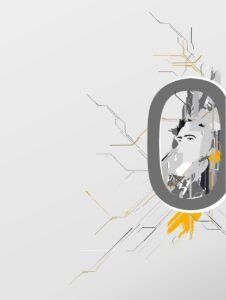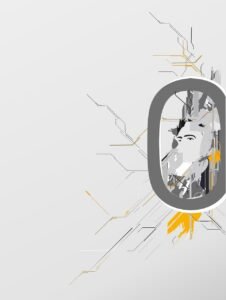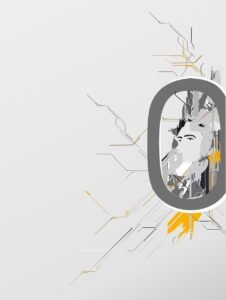Duke Cunningham corruption: War hero to political scandal
- THE MAG POST

- Aug 31, 2025
- 4 min read

Duke Cunningham corruption reveals a paradox: a celebrated Vietnam-era ace who rose to Congress, only to be eclipsed by a bribery scandal that led to prison time and a presidential pardon. In this piece, we trace the arc from battlefield hero to controversial lawmaker, and we examine the broader implications for ethics and oversight that echo beyond one name. By revisiting court documents, investigative reporting, and the institutions that shaped his career, we gain insight into accountability in American politics and the enduring relevance of ethical questions that continue to resonate in public life.
From Vietnam Ace to Capitol Scandal: Duke Cunningham corruption
A celebrated Vietnam-era ace turned congressman, his story showcases how military fame can collide with political pressure and private gain.
Vietnam Ace Turned Congressman
Randall H. Cunningham, a Navy aviator who shot down five enemy planes during Vietnam, became one of two aviators from that era to receive ace status. Recruited by Republican activists in 1990, he won multiple reelections and sat on influential panels such as Appropriations and Intelligence, where access to defense contracting became a wrench in the machinery of governance. The trajectory—heroic service followed by legislative leverage—illustrates how personal narrative can merge with institutional power, enabling channels through which private favors might be exchanged for public favors. In this arc, the phrase Duke Cunningham corruption crops up as a shorthand for the clash between battlefield valor and the temptations of influence.
Throughout his time in Congress, Cunningham leveraged committee assignments to advocate for military suppliers, underscoring a broader pattern in which military procurement intersects with political capital. The combination of acclaim and authority created a platform where the line between legitimate oversight and patronage could blur, highlighting how oversight mechanisms must adapt to complex, real-world incentives.
Corruption and Consequences
The Duke Cunningham corruption narrative centers on a bribery scheme and tax-related charges that culminated in a guilty plea in 2005. Prosecutors described a web of favors from defense contractors—ranging from a Rolls-Royce to free rent on a live-aboard yacht, the Duke-Stir, moored on the Potomac—paired with a sale of a San Diego home at a price well above market value, netting substantial unreported benefits. For a public official, the pattern of gifts and favorable deals underscored how access to power can translate into personal gain, and how such arrangements undermine the very checks and balances designed to protect taxpayers. The defense of legitimacy began to erode as the case unfolded, revealing the costs of blurring personal enrichment with public duty.
The judicial outcome was severe: Cunningham received more than eight years in prison, a sentence that marked one of the longer penalties for corruption among former members of Congress. He was released in 2013, and his case reached a national audience that had followed the San Diego Union-Tribune’s investigative reporting. The editors’ work helped illuminate the sequence of events and the broader implications for oversight. In 2021, President Trump issued a pardon on the tail end of his term, a decision that reignited debate about pardons in high-profile corruption cases and the nuanced boundary between accountability and mercy.
Impact on Public Trust and Accountability
The arc described by Duke Cunningham corruption raises enduring questions about the resilience of public institutions when confronted with powerful actors who wield both fame and influence. The case illustrates how oversight gaps can be exploited through procurement decisions and political bargaining, where the incentives for contractors to win favorable deals may outgun the imperative of prudent budgeting. It also emphasizes the need for transparent disclosures, robust whistleblower protections, and stronger enforcement mechanisms that can deter future improprieties while preserving legitimate defense partnerships critical to national security.
Media scrutiny played a pivotal role in translating complex regulatory failures into a public narrative that could mobilize reform. Investigative reporting—championed by outlets such as the San Diego Union-Tribune—demonstrated that watchdog journalism remains a vital safeguard in the political process. The Pulitzer Prize recognition for national reporting underscored how evidence-based storytelling can influence policy discussions and accountability norms, reinforcing the idea that truth-telling is a foundational pillar of democratic governance.
Legacy and Lessons for Modern Politics
Ethics, accountability, and the politics of pardons intersect in the Cunningham footprint. The case invites a reevaluation of how lawmakers interact with private interests and how the consequences of unethical conduct reverberate through the institutions they influence. It also invites reflection on whether existing penalties and post-service remedies adequately deter future violations, and how reform efforts can be calibrated to protect taxpayers without stifling legitimate defense collaboration.
Balancing national security priorities with public integrity requires robust governance: tighter rules around conflict of interest, stricter cooling-off periods, enhanced transparency in procurement, and vigilant oversight of lawmakers’ ties to contractors. The Cunningham episode serves as a cautionary tale about the fragility of trust and the ongoing need to align political incentives with the common good, a task that persists in every era of public service.
The Ultimate Takeaway: Ethics, Oversight, and Public Service
In the end, Duke Cunningham corruption underscores that heroism on the battlefield does not automatically shield civilians from the temptations or consequences of power. The enduring lesson lies in building stronger institutions, fostering a culture of accountability, and ensuring that the public’s trust is safeguarded by transparent processes, rigorous investigations, and principled leadership. Only then can a legacy that includes both bravery and accountability be reconciled within the annals of public service.
Aspect | Highlights |
Life & Heroism | Vietnam-era Navy ace; one of two such aviators to down five enemy planes |
Political Rise | Recruited in 1990; repeatedly elected; seated on Appropriations & Intelligence |
Corruption & Charges | Conspiracy to commit bribery; tax evasion; favors from defense contractors |
Legal Outcomes | Guilty plea in 2005; 8+ years in prison; released 2013; pardoned 2021 |
Media Coverage | San Diego Union-Tribune exposé; Pulitzer Prize for national reporting |
Legacy & Lessons | Impact on defense oversight; ethics reforms and accountability discussions |






















































Comments